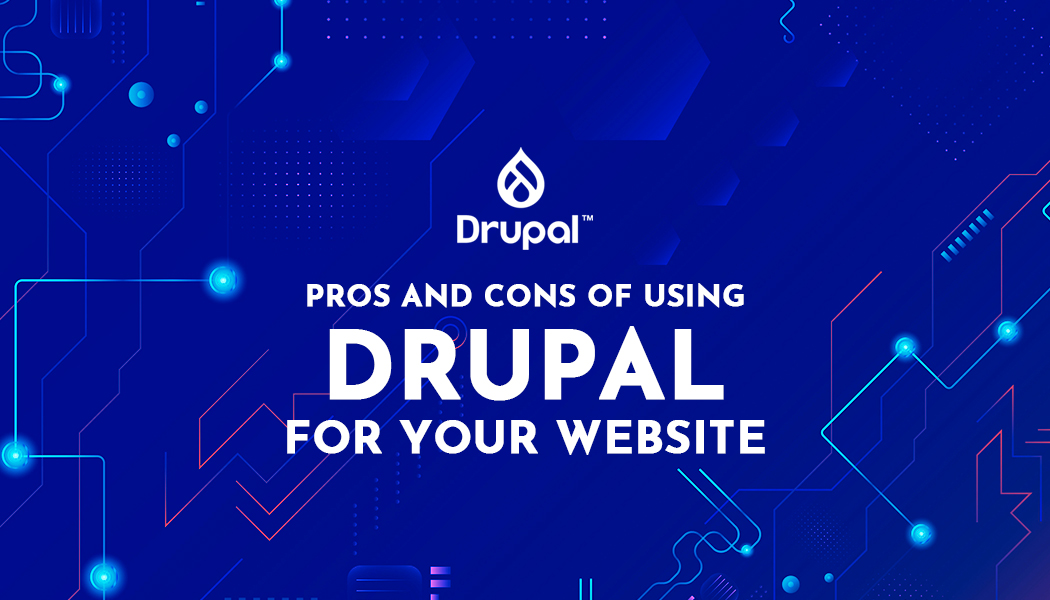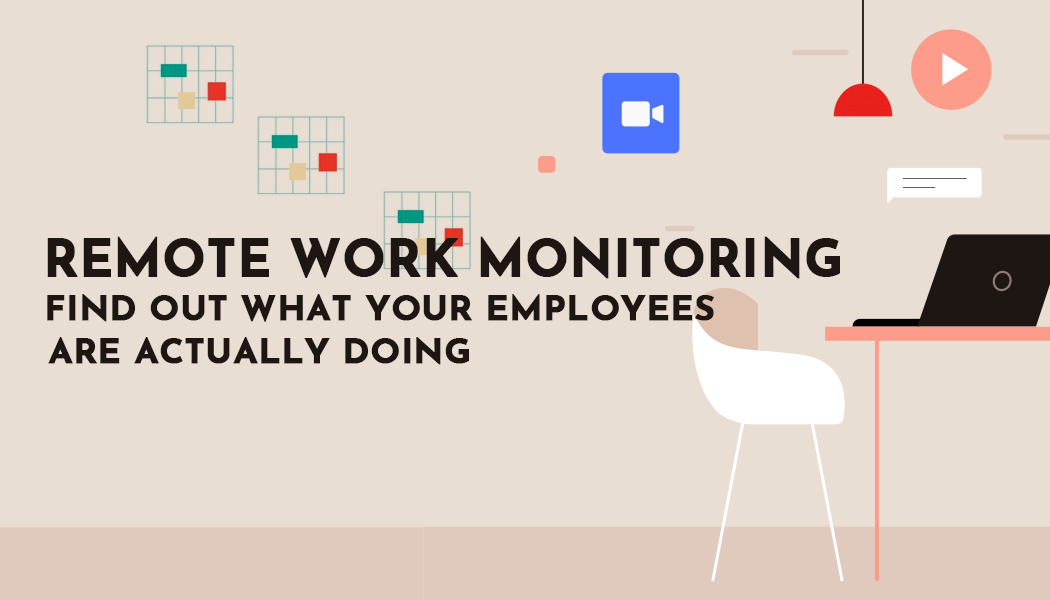Pros and Cons of Using Drupal for Your Website
Drupal stands out as a powerful platform when creating a robust online presence. With its extensive features and customization options, Drupal development services offer a solid foundation for building dynamic websites. One of the key advantages is its scalability, making it suitable for small businesses and large enterprises. Additionally, Drupal's strong security measures provide peace of mind for website owners.
However, navigating Drupal's complex interface may require technical expertise, and customization can sometimes be challenging for beginners. Furthermore, Drupal development services may involve higher initial costs compared to some other platforms.
In this guide, we'll delve deeper into the pros and cons of using Drupal for your website, helping you make an informed decision about whether it's the right choice for your online presence.
What is Drupal?
Drupal is a powerful and versatile platform for building websites. Think of it as a toolbox filled with tools that help you create, organize, and manage your website content. It's like having a super-smart assistant that handles everything from simple blogs to complex e-commerce sites.
What makes Drupal special is its flexibility. You can customize almost every aspect of your website, from the layout and design to how users interact with it. It's also great for handling large amounts of content and supporting multiple users.
In simple terms, Drupal is like a digital Swiss Army knife for web development. Whether you're a beginner or an experienced developer, Drupal offers a wide range of features and functionalities to bring your website ideas to life.
What Is Drupal Used For?
Drupal is used to create all sorts of websites, from simple blogs to complex e-commerce platforms. It's like a versatile tool that can handle various web development needs.
Here are some common uses for Drupal:
-
Content Management: Drupal excels at managing and organizing content. It's perfect for websites with many articles, blog posts, images, and videos that need to be organized and displayed neatly.
-
E-commerce: Many businesses use Drupal to power their online stores. With its robust features for product management, shopping carts, and payment gateways, Drupal provides a solid foundation for e-commerce websites.
-
Community Portals: Drupal is popular for creating online communities and social networking platforms. It offers features like user profiles, forums, messaging, and user-generated content, making it ideal for building vibrant online communities.
-
Corporate Websites: Drupal is often used by businesses and organizations for their official websites. Its scalability, security features, and ability to handle complex content structures make it a preferred choice for corporate websites.
-
Educational Platforms: Universities and educational institutions use Drupal to create online learning platforms and course management systems. Its flexibility allows for customizing features like course catalogs, student dashboards, and online assessments.
Overall, Drupal is a versatile tool that can be adapted to suit a wide range of website needs, making it a popular choice among developers and businesses alike.
Advantages of Drupal
Here’s a detailed look at the advantages of Drupal:
Flexibility and Customization:
Drupal’s flexibility and customization options are key advantages that set it apart. You can tailor your website precisely to your needs, whether a simple blog or a complex e-commerce platform. With a wide range of themes, modules, and configuration settings, Drupal empowers you to create a unique and personalized online presence. This flexibility ensures that your website looks great and functions exactly how you want it to, accommodating your specific business goals and audience preferences effortlessly.
Scalability:
Scalability is a standout advantage of Drupal, making it suitable for websites of all sizes. Whether you're starting small and expecting rapid growth or managing a large enterprise site, Drupal can handle the traffic seamlessly. Its robust architecture and efficient resource management ensure that your website remains responsive and performs optimally, even during peak usage periods. This scalability future-proofs your website and provides a reliable platform for your business to expand and thrive without constraints.
Robust Content Management:
Drupal’s robust content management system (CMS) is a major advantage, empowering users to manage and organize content effortlessly. Whether you're publishing articles, images, videos, or product listings, Drupal offers intuitive tools for creating, editing, and scheduling content. Its flexible content architecture allows easy categorization and customization, ensuring a seamless user experience. With Drupal, you have full control over how your content is presented, making it easy to engage and captivate your audience effectively.
Thriving Community Support:
Drupal benefits greatly from its thriving community support, which includes developers, designers, and users. This active community contributes to ongoing improvements, provides valuable resources, and offers timely assistance. Whether you're a beginner or an experienced user, you can tap into a wealth of documentation, forums, and tutorials to enhance your Drupal experience. The collaborative nature of the Drupal community ensures that you have access to the latest updates, best practices, and innovative solutions, making Drupal a reliable and well-supported platform for your website needs.
Top-notch Security:
Drupal boasts top-notch security measures, making it a trusted choice for websites. It incorporates robust built-in security features and follows industry best practices to protect against vulnerabilities and threats. Regular security updates and patches are released to ensure your website remains secure and resilient. With Drupal, you can have peace of mind knowing that your data, user information, and website integrity are well safeguarded. Its proactive approach to security minimizes risks and helps maintain a safe online environment for your visitors.
SEO Friendliness:
Drupal's SEO friendliness is a significant advantage for website owners. It provides tools and modules that simplify search engine optimization tasks, such as customizable URLs, meta tag management, XML sitemap generation, and responsive design options. These features enable better visibility and ranking on search engine results pages (SERPs), helping attract more organic traffic to your website. With Drupal, you can optimize your content effectively, improve your website's search engine performance, and reach a wider audience online.
Multilingual Capabilities:
Drupal's multilingual capabilities make it a standout choice for global websites. It allows you to create content in multiple languages, manage translations efficiently, and provide a seamless user experience for diverse language audiences. Whether you're targeting international markets or serving multilingual communities, Drupal simplifies creating and maintaining multilingual content. Its language detection and switching features ensure that visitors can easily navigate your website in their preferred language, enhancing engagement and accessibility on a global scale.
Integration Capabilities:
Drupal's integration capabilities are a significant advantage, enabling seamless connections with third-party services and applications. Whether you need to integrate payment gateways, CRM systems, social media platforms, or other tools, Drupal makes it easy. Its extensive range of modules and APIs allows for smooth integration, expanding your website's functionality and enhancing user experiences. With Drupal, you can streamline workflows, automate processes, and create a cohesive digital ecosystem that meets your business needs.
Disadvantages of Drupal
While Drupal offers numerous advantages, it's also essential to consider its disadvantages. Here are some common drawbacks of Drupal explained below:
Steep Learning Curve:
Drupal's steep learning curve can be challenging for newcomers. Its advanced features and complex terminology may require more time and effort than simpler website platforms. Users, especially those without technical backgrounds, may struggle to navigate Drupal's intricacies and customization options. This learning curve can result in a longer setup time and may require additional training or support to harness Drupal's capabilities fully.
Complexity for Small Projects:
Drupal's complexity can sometimes be overwhelming for small projects. While beneficial for large-scale websites, its extensive features and robustness may feel like overkill for simpler projects. Small businesses or individuals looking to create basic websites may find Drupal's learning curve and customization options more complex than necessary. This could lead to unnecessary time and effort spent on setup and management, making simpler platforms more suitable for their needs.
Resource Intensive:
Drupal can be resource-intensive, especially for websites with high traffic or complex functionalities. Running a Drupal website may require more server resources, leading to higher hosting costs. This can be a disadvantage for small businesses or individuals with limited budgets. Additionally, optimizing Drupal for performance may require technical expertise to ensure smooth operation and fast loading times.
Limited Themes and Templates:
One of Drupal's drawbacks is its limited selection of ready-made themes and templates compared to other platforms. Finding a design that perfectly matches your vision without extensive customization can make it challenging. Users may find themselves either using a generic theme or investing time and resources in customizing the design to achieve the desired look and functionality. This limitation can be a drawback for those seeking a quick and easy website setup with various design options.
Module Compatibility:
Module compatibility can be a downside of using Drupal. Not all Drupal modules are compatible with each other or with every version of Drupal. This can lead to issues when integrating multiple modules or when upgrading to newer versions of Drupal. Users may encounter compatibility conflicts that require troubleshooting and may slow down the development process. It's essential to carefully research and test modules to ensure they work seamlessly together to avoid compatibility headaches.
Cost of Development:
The cost of developing a Drupal website can be higher than other platforms. Customizing and building advanced functionalities in Drupal may require more resources, such as hiring experienced developers or investing in specialized modules. This can increase upfront development costs, making Drupal less budget-friendly for small businesses or individuals with limited financial resources. It's important to consider the overall development budget and weigh the costs and benefits of using Drupal for your specific project needs.
Maintenance and Updates:
Maintaining a Drupal website requires regular updates and maintenance tasks, which can be time-consuming. Users need to stay on top of security patches, module updates, and Drupal core updates to ensure their website remains secure and up-to-date. This ongoing maintenance can be a burden for users without technical expertise or dedicated IT support. Additionally, updating Drupal and its modules may sometimes lead to compatibility issues or require troubleshooting, adding to the maintenance workload.
Community Size:
The size of Drupal's community, while supportive, may not be as vast as some other platforms like WordPress. This smaller community size can sometimes mean finding specific solutions or getting immediate support for niche issues may take longer. Users may encounter challenges finding comprehensive documentation or quick answers to technical questions due to the community's size. It's important to consider the availability of resources and support when choosing a platform like Drupal for your website.
Conclusion
In conclusion, Drupal offers a robust platform with numerous advantages such as flexibility, scalability, and strong content management. Its active community support and top-notch security further enhance its appeal. However, navigating its steep learning curve, managing resource-intensive setups, and dealing with limited themes and module compatibility can pose challenges, especially for small projects. Despite these drawbacks, Drupal remains a solid choice for businesses seeking customizable and scalable websites.
For those considering Drupal, it's essential to weigh the pros and cons carefully. Consider hiring Drupal developers who can navigate its complexities and harness its full potential while mitigating its disadvantages. With the right expertise and strategy, Drupal can be a powerful tool to create dynamic and engaging online experiences for your audience.




